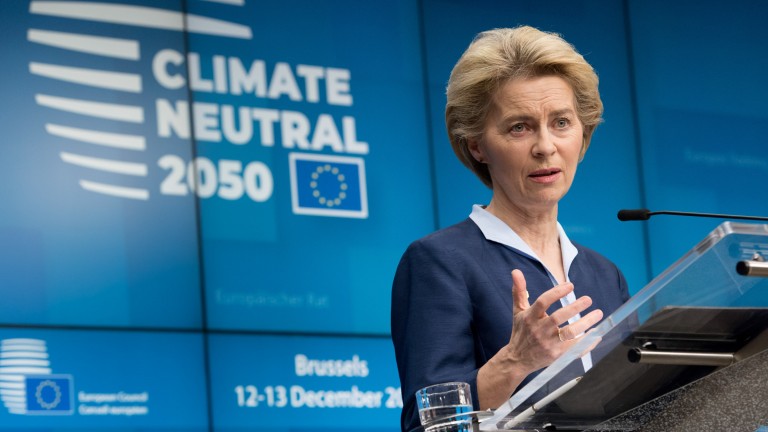

There is widespread coverage of the European Commission’s proposed law on how the EU can reach net-zero emissions by 2050. Reuters says the “climate law” would make the target legally binding, but must first be approved by member states and the European Parliament. According to Politico, the draft law “dodges the most politically charged issue of immediately boosting the bloc’s 2030 emissions reduction goal”, instead setting a September deadline to review the impact of raising the current 40% reduction target to as high as 55%, compared to 1990 levels. Politico adds that the draft would give the commission “new powers to push through higher emissions targets every five years after 2030”. Bloomberg says the commission is seeking to legislate these five-yearly targets via “delegated acts”, which can only be opposed by a qualified majority vote of member state governments, plus a majority in the European Parliament. Previous targets have been agreed every 10 years, via unanimity. The Financial Times says: “Brussels is fighting off attacks from MEPs and environmental campaigners, including the teenage activist Greta Thunberg, on its landmark climate law.” It says that criticism has focused on the failure to “nail down more immediate milestones”, of which “[t]he most politically sensitive is an EU-wide emissions target for 2030”. It adds that 12 member states want the commission to propose a higher 2030 target by June, as reported by the Guardian on Tuesday. The FT adds that the commission will also have to “face down resistance from member states” over its proposal to be able to set new targets for 2035, 2040 and 2045 using delegated acts. Politico quotes the leader of Germany’s Christian Democrats in the European Parliament calling this move “unacceptable”. BusinessGreen says the draft would require member states to set out plans for reaching net-zero, giving the commission powers to review progress and issue recommendations. It adds that the commission would review all EU policy by next year to ensure it is in line with the 2050 target.
Much of the coverage of the announcement focuses on criticism from activists including Greta Thunberg, who according to Bloomberg described the decision to postpone raising of the EU’s 2030 target as “surrender”. BBC News leads its coverage of the climate law with Thunberg’s criticism, as do the New York Times, Reuters, Washington Post, Independent, Daily Telegraph and another Politico article. BusinessGreen asks if Thunberg’s criticism of the EU is justified. [Along with 33 other climate strikers, Thunberg wrote an open letter on the EU climate law published by Carbon Brief on Tuesday.] A piece in the Guardian reports the comments of Frans Timmermans, the commission’s top climate official, saying the legally binding climate law was necessary so that it would hold firm, even in the face of other crises such as coronavirus. The paper adds: “Speaking to the Guardian and six other European newspapers shortly before the law was published, Timmermans said the proposal was revolutionary because all EU legislation would have to be in line with net-zero emissions by the mid-century.” Meanwhile, Time has a piece on how “Europe’s border carbon tax plan could force the US to act on climate change”. And New Statesman has a profile of Greta Thunberg.
Separately, Climate Home News reports on how legal gaps and the US election could delay countries’ plans to raise their climate ambition ahead of the COP26 climate summit in November. It points to an EU-China summit in September, where “the EU is hoping to engage Beijing in a race to the top to ensure global action to curb emissions remains meaningful even without the US on board”, but notes that EU plans to raise its own target for 2030 are not due to be assessed until the same month.
Guest post from Reuters




